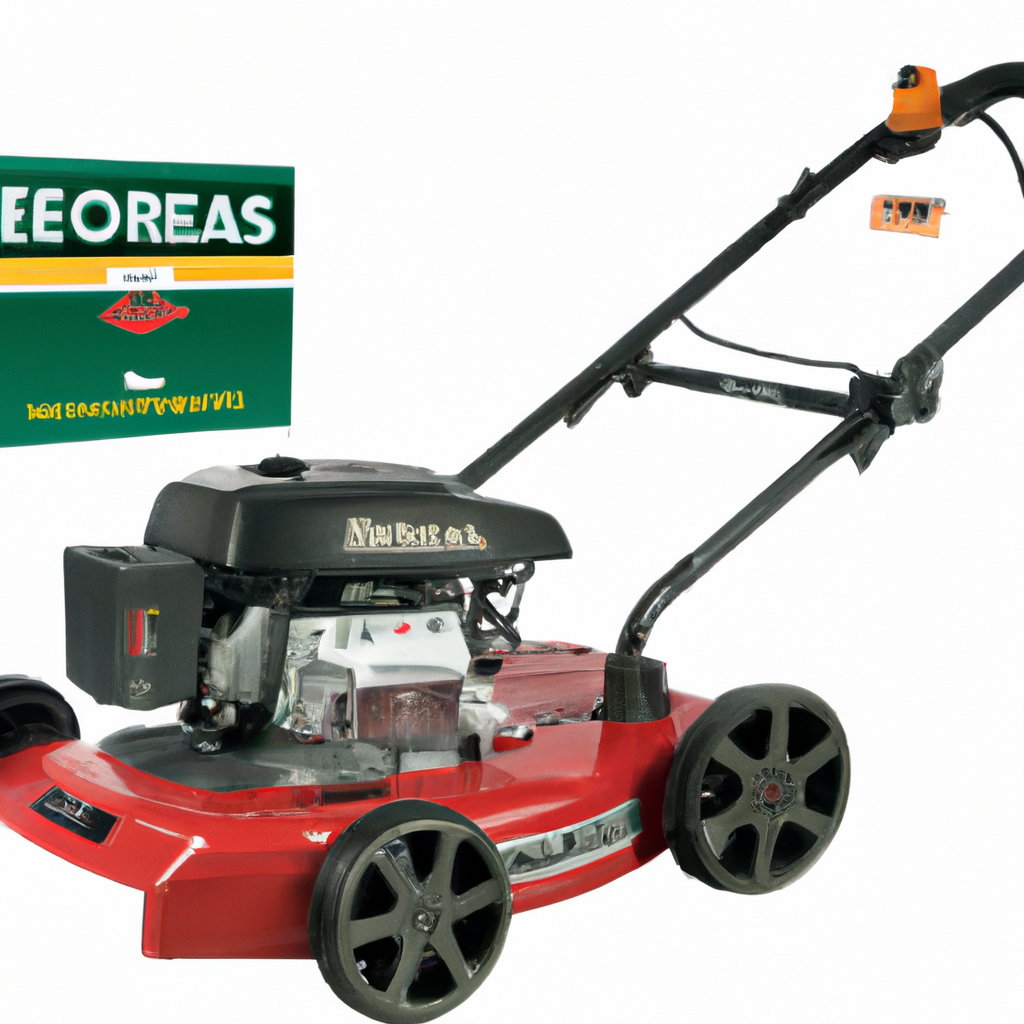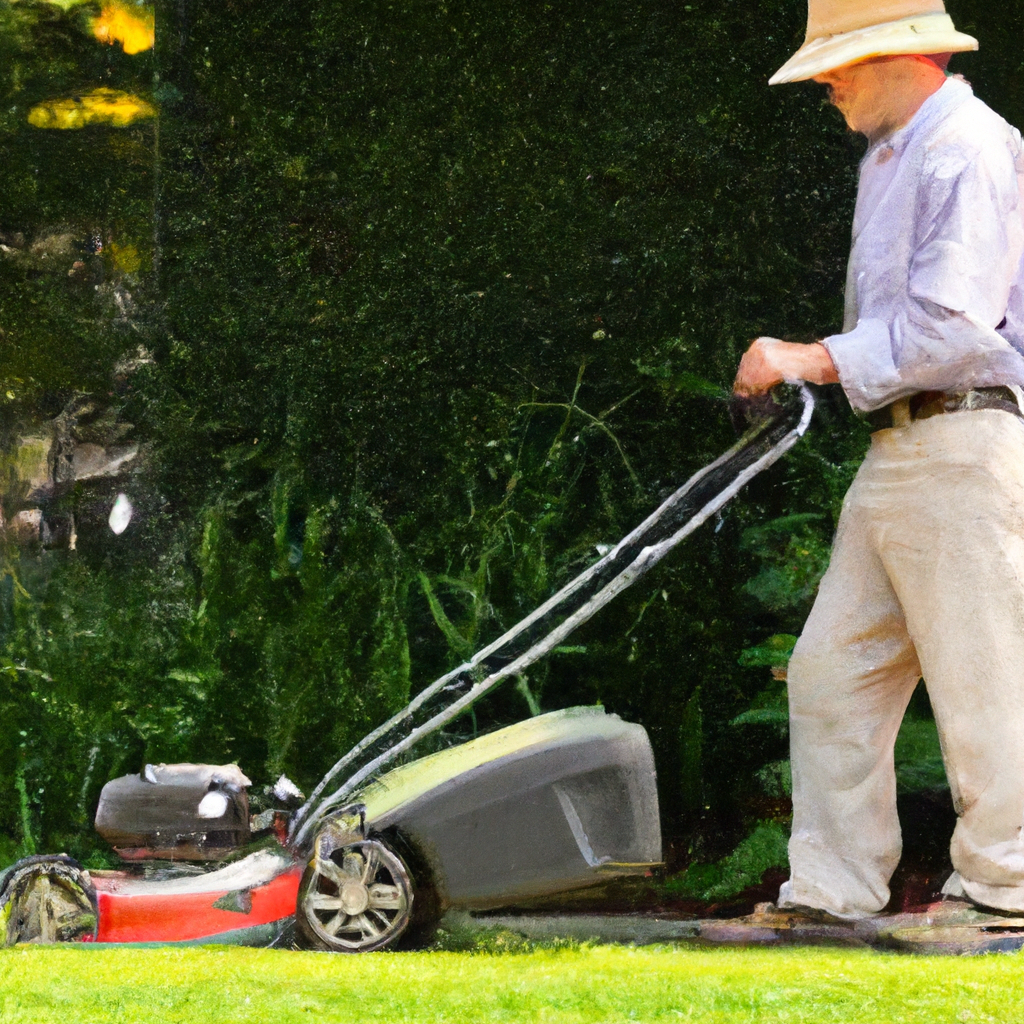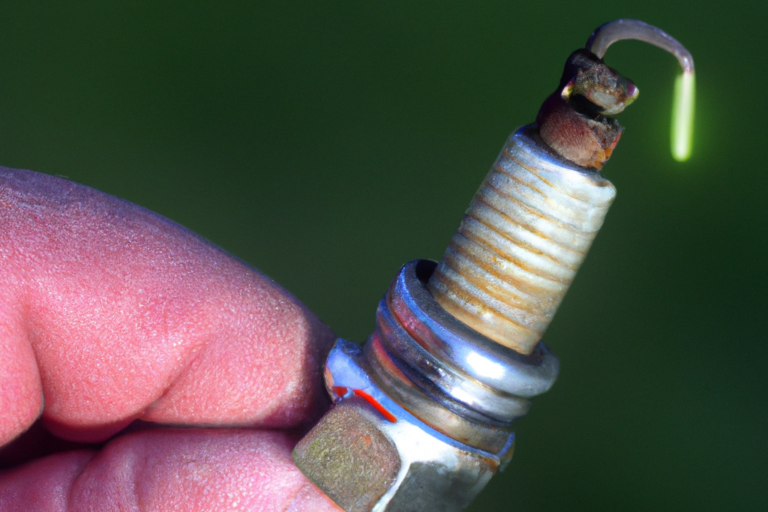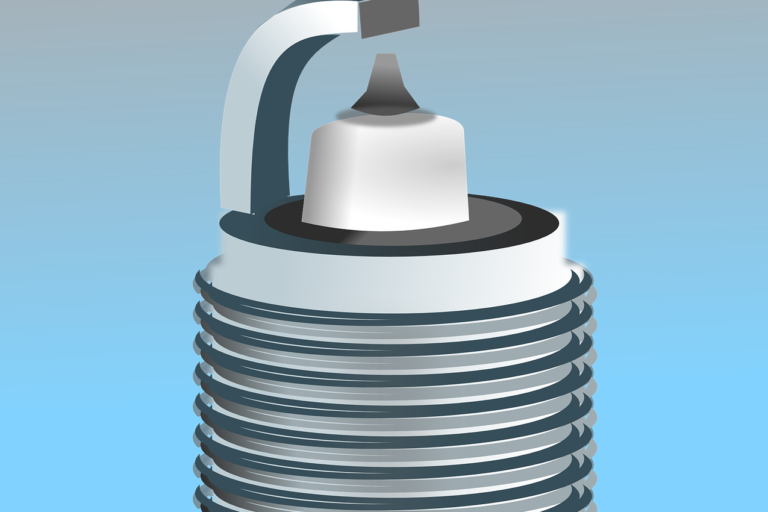If you’ve been using an electric mower and it suddenly starts making more noise than usual, don’t worry – there are steps you can take to troubleshoot and identify the causes of this excessive noise. From checking the blade to inspecting the motor, this article will guide you through the process of troubleshooting your electric mower, helping you address the problem and restore the peace and quiet to your yard.

Potential Causes of Excessive Noise
Excessive noise from an electric mower can be frustrating and disruptive, but there are several potential causes to consider. By identifying these causes, you can take the necessary steps to troubleshoot and resolve the issue.
Blade Issues
One common cause of excessive noise in an electric mower is blade issues. Inspect the blades for any signs of damage or dullness. Over time, blades can become blunt or nicked, which can lead to a louder operation. If you notice any damage or dullness, it is important to sharpen or replace the blades to ensure smooth and efficient cutting.
Loose or Worn Parts
Another potential cause of excessive noise is loose or worn parts. As the mower is in use, bolts and nuts can become loose, which can contribute to vibrations and noise. Inspect the mower for any loose bolts or nuts and tighten them as necessary. Additionally, worn parts such as bearings or pulleys can also lead to increased noise. If you identify any worn parts, it is best to replace them accordingly.
Motor Problems
Motor problems can also be responsible for the excessive noise emitted by an electric mower. Begin by checking the motor mounting to ensure it is secure and properly aligned. Loose or misaligned mounting can cause vibrations and generate noise. Additionally, inspect the motor fan or housing for any damage or obstructions, as these can also contribute to increased noise levels. Moreover, verifying proper lubrication and checking electric connections can help identify and resolve motor-related issues.
Belt Problems
Issues with the mower’s belt can also lead to excessive noise. Inspect the belt for any signs of damage, such as fraying or cracking. A damaged belt should be replaced to ensure optimal performance and reduce noise. Additionally, check the tension of the belt to ensure it is properly adjusted. An overly tight or loose belt can cause noise during operation. Lastly, check for any misalignment of the belt, as this can also contribute to increased noise levels.
Deck Issues
The deck is an integral part of the electric mower, and any issues with it can result in excessive noise. Inspect the deck for any signs of damage or misalignment. Damage can occur due to the impact with obstacles or general wear and tear. Misalignment, on the other hand, can cause the blades to make contact with the deck, creating noise. Additionally, check for any debris or obstructions that may have accumulated in the deck, as they can also contribute to noise during operation.
Troubleshooting Steps
To troubleshoot an electric mower emitting excessive noise, there are several steps you can follow. By systematically inspecting and addressing each aspect, you can identify and resolve the root cause of the noise.
Inspect Blades for Damage or Dullness
The first step is to carefully inspect the blades for any signs of damage or dullness. Take note of any nicks, chips, or bending. Dull blades not only contribute to increased noise but can also result in a rough and uneven cut. If any damage or dullness is detected, it is important to sharpen or replace the blades accordingly.
Check for Loose or Worn Parts
Next, examine the mower for any loose or worn parts. Ensure all bolts and nuts are tightened securely to prevent vibrations and noise. Pay special attention to areas where the engine or other components are attached to the mower’s frame. Additionally, check for any signs of wear or tear on parts such as bearings, pulleys, or belts. Replace any damaged or worn parts to reduce noise levels.
Examine the Motor for Problems
Inspect the motor for any potential problems that could be causing excessive noise. Begin by checking the motor mounting to ensure it is secure and properly aligned. Loose or misaligned mounting can lead to vibrations and increased noise output. Additionally, carefully examine the motor fan or housing for any damage or obstructions. Clear away any debris or obstructions that may be interfering with the motor’s operation. Finally, check the motor’s electric connections to ensure they are secure and free from any corrosion or damage.
Inspect the Belt for Damage or Misalignment
The mower’s belt plays a crucial role in its operation and can contribute to noise if not in optimal condition. Inspect the belt for any signs of damage, such as fraying, cracking, or stretching. A damaged belt should be promptly replaced to restore smooth and quiet operation. Additionally, check the tension of the belt to ensure it is properly adjusted. An overly tight or loose belt can cause noise during operation. Finally, check for any misalignment of the belt, ensuring it runs smoothly and evenly.
Check for Deck Issues
The mower’s deck is subject to wear and tear, and any issues with it can result in excessive noise. Examine the deck for any signs of damage or misalignment. Pay special attention to the areas where the blades make contact with the deck. Any damage or misalignment can lead to increased noise levels. Additionally, check for any debris or obstructions that may have collected within the deck. Clearing away any debris will ensure smooth and quiet operation.

General Maintenance
To minimize the occurrence of excessive noise and promote the longevity of your electric mower, regular maintenance is essential. By following these general maintenance tips, you can keep your mower operating quietly and efficiently.
Regular Cleaning
Regularly clean your electric mower to prevent debris from accumulating and causing issues such as misalignment or damage to the blades or deck. After each use, remove any grass clippings or dirt from the mower’s body, blades, and deck. Pay attention to hard-to-reach areas where debris can easily accumulate. An accumulation of debris can lead to noise during operation and reduce the mower’s overall performance.
Lubrication
Proper lubrication is crucial for the smooth operation of the electric mower. Regularly lubricate moving parts such as bearings, pulleys, and belts according to the manufacturer’s recommendations. This will help reduce friction and noise, as well as extend the lifespan of these components. Always use the correct lubricant recommended by the manufacturer for your specific electric mower model.
Proper Storage
When not in use, store your electric mower in a dry and clean environment. Exposure to moisture or extreme temperatures can lead to rust or damage, which can contribute to increased noise during operation. Additionally, ensure the mower is stored in a secure position to prevent any accidental damage. Proper storage will help maintain the mower’s performance and reduce the likelihood of excessive noise.
Professional Assistance
If troubleshooting and performing maintenance on your electric mower does not resolve the excessive noise issue, it may be necessary to seek professional assistance. There are two options you can consider:
Contacting Manufacturer or Service Center
Contact the manufacturer of your electric mower or a certified service center to seek their expertise. They can provide guidance over the phone or arrange for an inspection and repair if necessary. They have the knowledge and experience to diagnose and resolve complex issues, ensuring your electric mower operates quietly and efficiently.
Consulting an Electric Mower Repair Specialist
Alternatively, you can consult an electric mower repair specialist. These professionals specialize in the repair and maintenance of electric mowers and have in-depth knowledge of their inner workings. An electric mower repair specialist can thoroughly diagnose the excessive noise problem and implement the necessary repairs for quiet and optimal operation.
Preventive Measures
To minimize the likelihood of excessive noise in the future, it is important to take proactive measures. By incorporating these preventive measures into your routine, you can extend the lifespan of your electric mower and maintain its quiet operation.
Regular Inspection and Maintenance
Perform regular inspections of your electric mower to identify and address any potential issues before they cause excessive noise. Inspect the blades, belts, motor, and deck for any signs of damage or wear. Additionally, follow the manufacturer’s recommended maintenance schedule to ensure your mower receives the necessary care and adjustments.
Proper Handling and Storage
Handle your electric mower with care to avoid accidental damage. Avoid hitting solid objects or running over large rocks, which can cause damage to the blades or deck. When transporting the mower, secure it properly to prevent any shifting or impact. Additionally, always store the mower in a safe and dry location to prevent moisture or extreme temperatures from affecting its performance.
Avoiding Overload
Be mindful of the load you place on your electric mower. Avoid overloading it with thick or excessively long grass, as this can strain the motor and contribute to increased noise. Instead, opt for shorter and more frequent cutting sessions to maintain the mower’s efficiency and quiet operation.
By following these troubleshooting steps, general maintenance tips, and preventive measures, you can effectively address and prevent excessive noise in your electric mower. Remember to consult the manufacturer or a professional if the issue persists or if you are unsure of any repairs. With proper care and attention, your electric mower will continue to provide reliable and noise-free operation for years to come.





